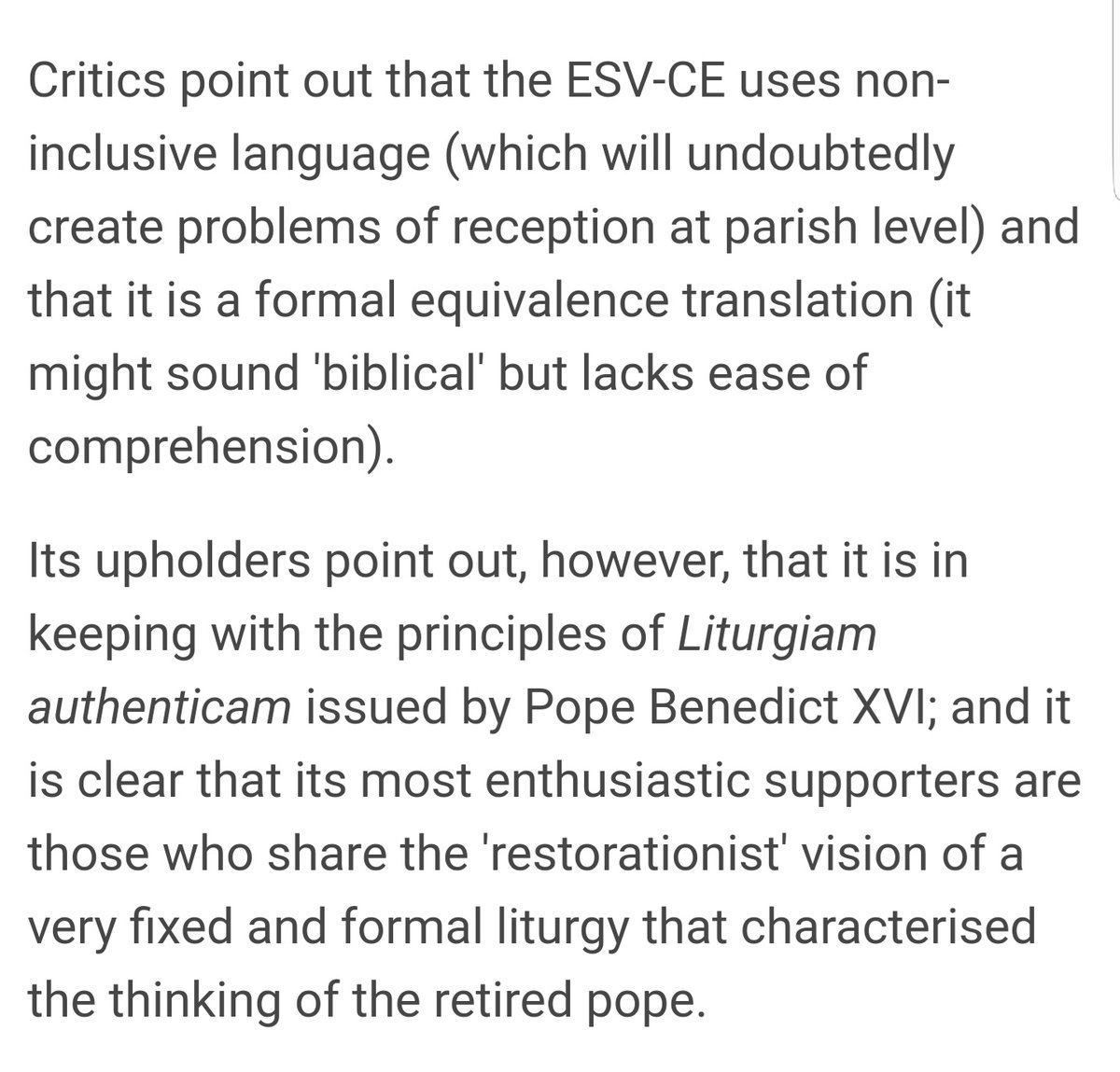
(1/7) This article (see pics) from Fr Gerald O'Collins, S.J., was published in this week's Tablet: Vol. 275, no. 9389 (13 Feb 2021), pp. 8-9 (also at thetablet.co.uk/features/2/194…).
It is, unfortunately, a bit of a disaster, containing two major errors.

It is, unfortunately, a bit of a disaster, containing two major errors.
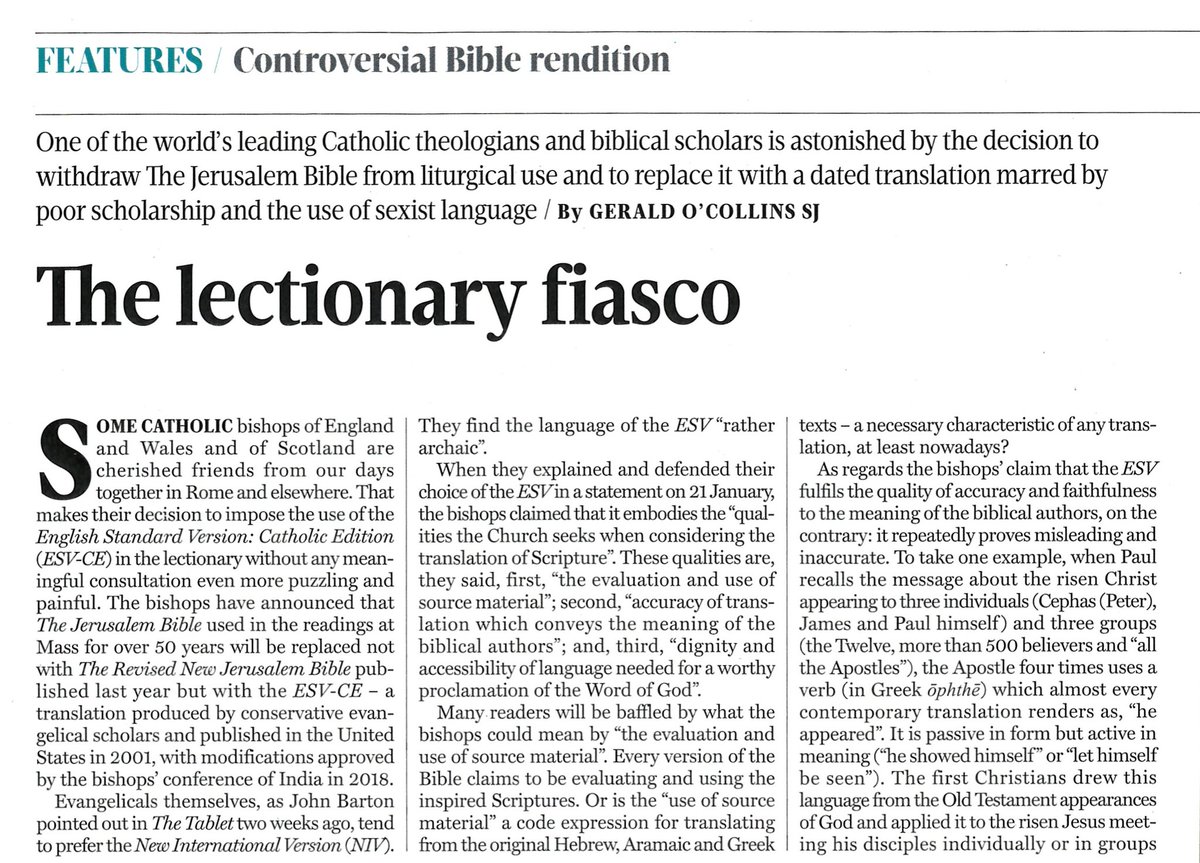
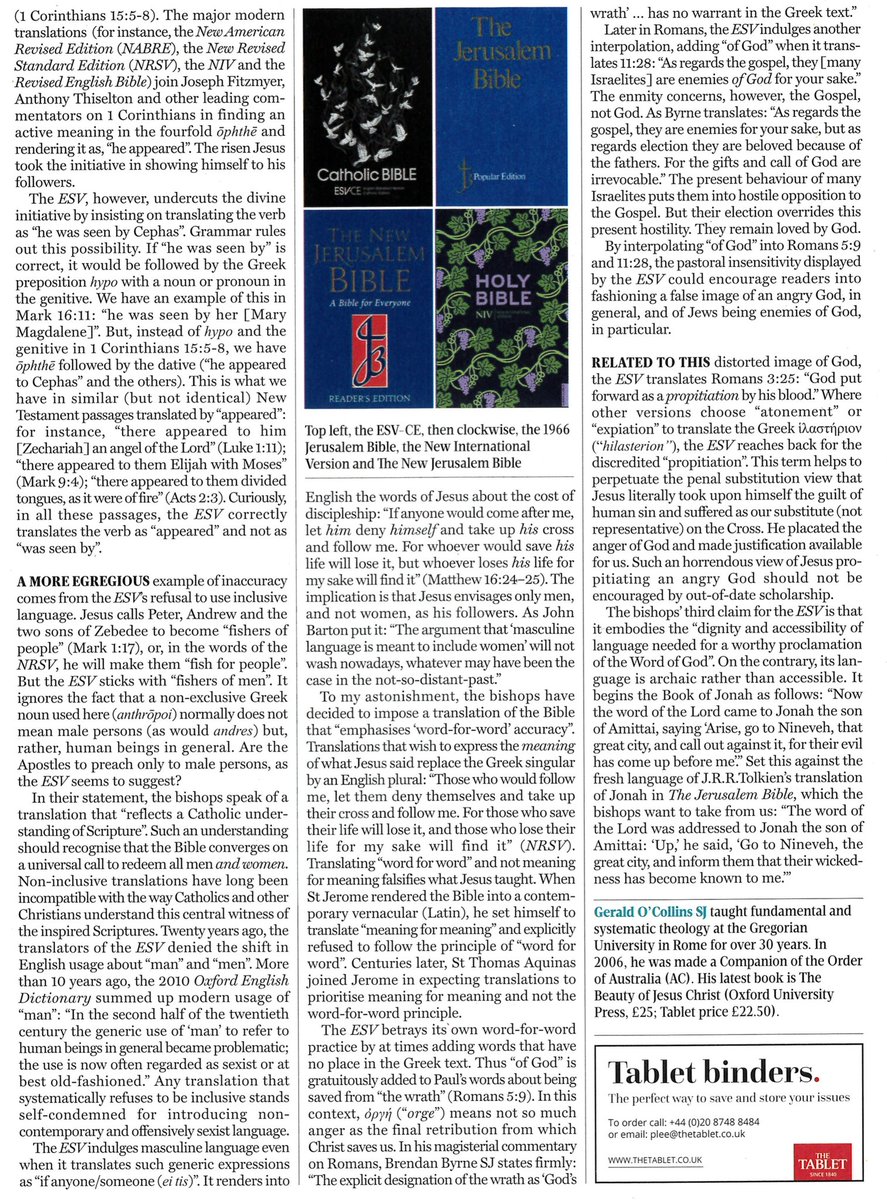
(2/7) Fr O'Collins spends two paragraphs excoriating the ESV for incorrectly translating ὤφθη in 1 Corinthians 15:5-8 as "he was seen" instead of "he appeared".
Except, the ESV doesn't say "he was seen" - it reads "he appeared" (see pic)!
Except, the ESV doesn't say "he was seen" - it reads "he appeared" (see pic)!
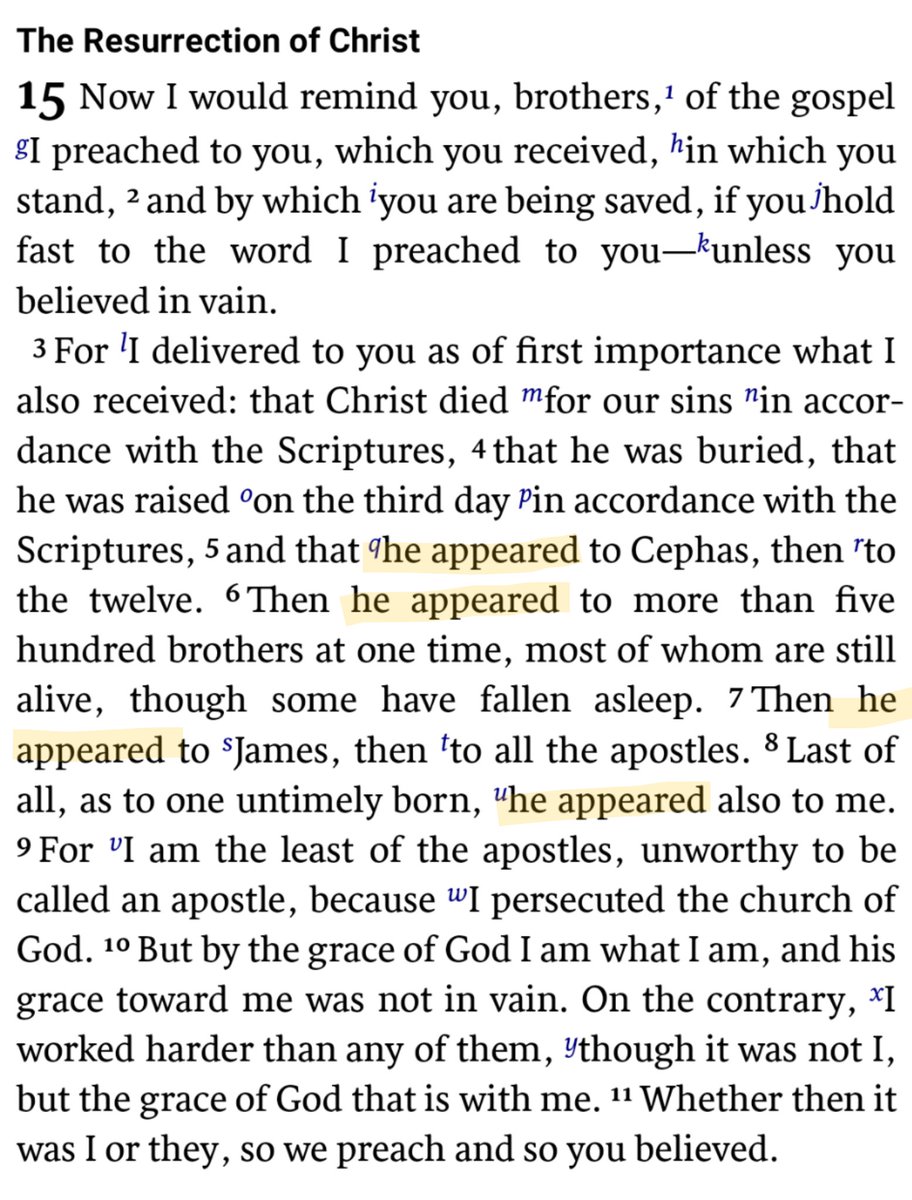
(3/7) At first, I thought that this might have been changed in the ESV - it has, after all, had a number of revisions (2007, 2011, 2016) since it came out in 2001. But I couldn't find these verses in any of the lists of textual changes.
(4/7) It turns out that Fr O'Collins has actually mixed up the ESV and RNJB texts! It is the RNJB (see pic) that incorrectly reads "he was seen" here in 1 Corinthians 15.
So, the translation supposedly being defended in the article is actually the one being heavily criticised!!
So, the translation supposedly being defended in the article is actually the one being heavily criticised!!
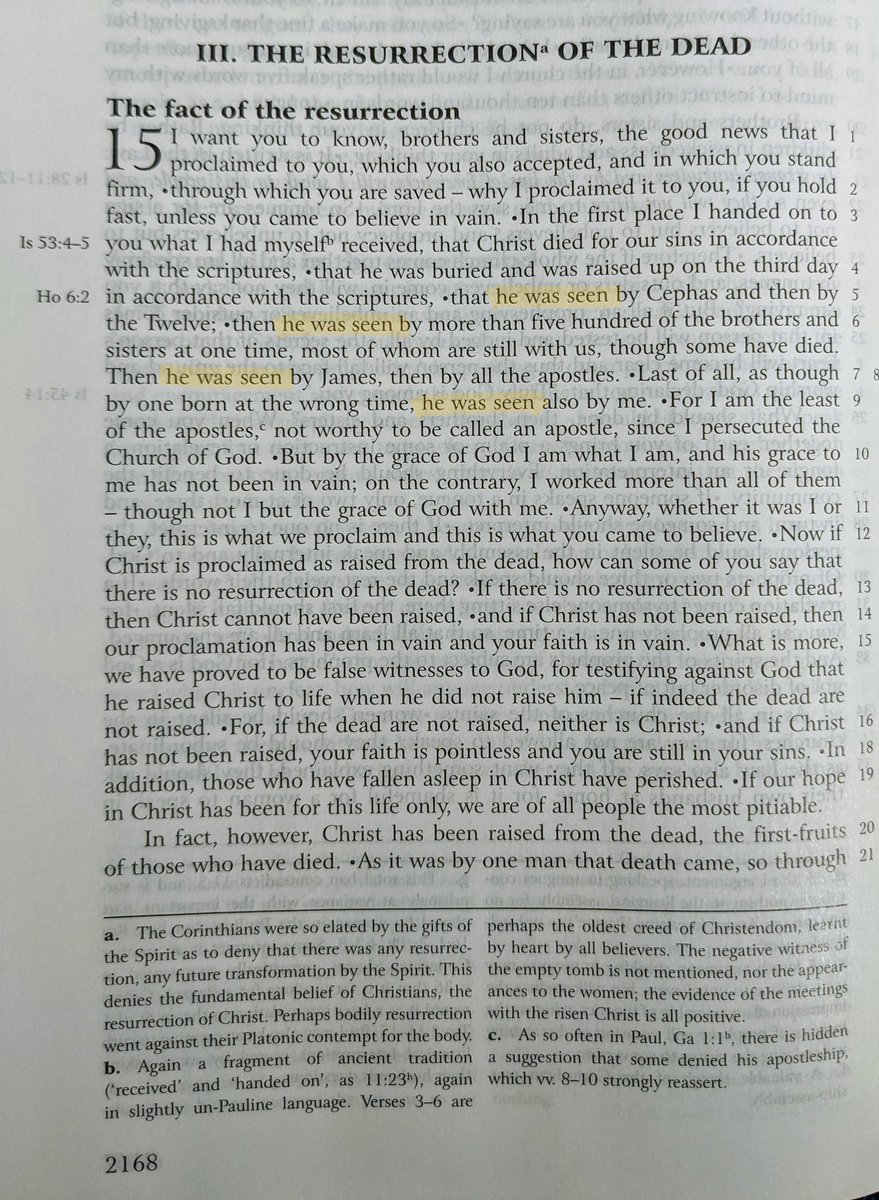
(5/7) Later on, Fr O'Collins criticises two interpolations (i.e. where words are added in translations to better convey meaning) in Romans 5:9 and 11:28.
But the addition "of God" in 11:28 is no longer in the ESV (see pic), having been removed in the 2011 revisions!
But the addition "of God" in 11:28 is no longer in the ESV (see pic), having been removed in the 2011 revisions!
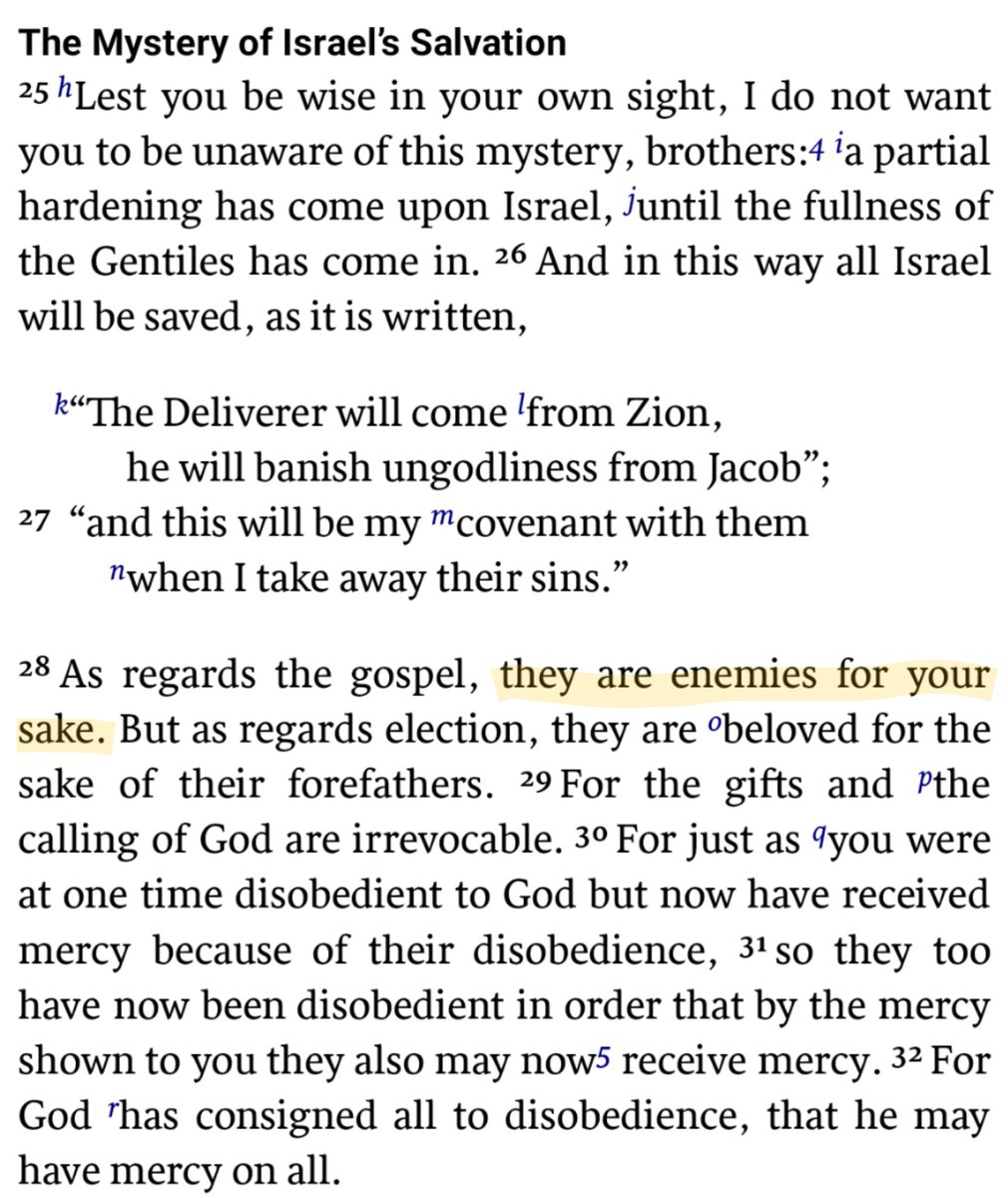
(6/7) The addition "of God" is still present in Romans 5:9 in the ESV (pic 1), but it is also present in the NRSV (pic 2) and... the RNJB (pic 3)!!
How is it fair to single out the ESV for criticism here?


How is it fair to single out the ESV for criticism here?
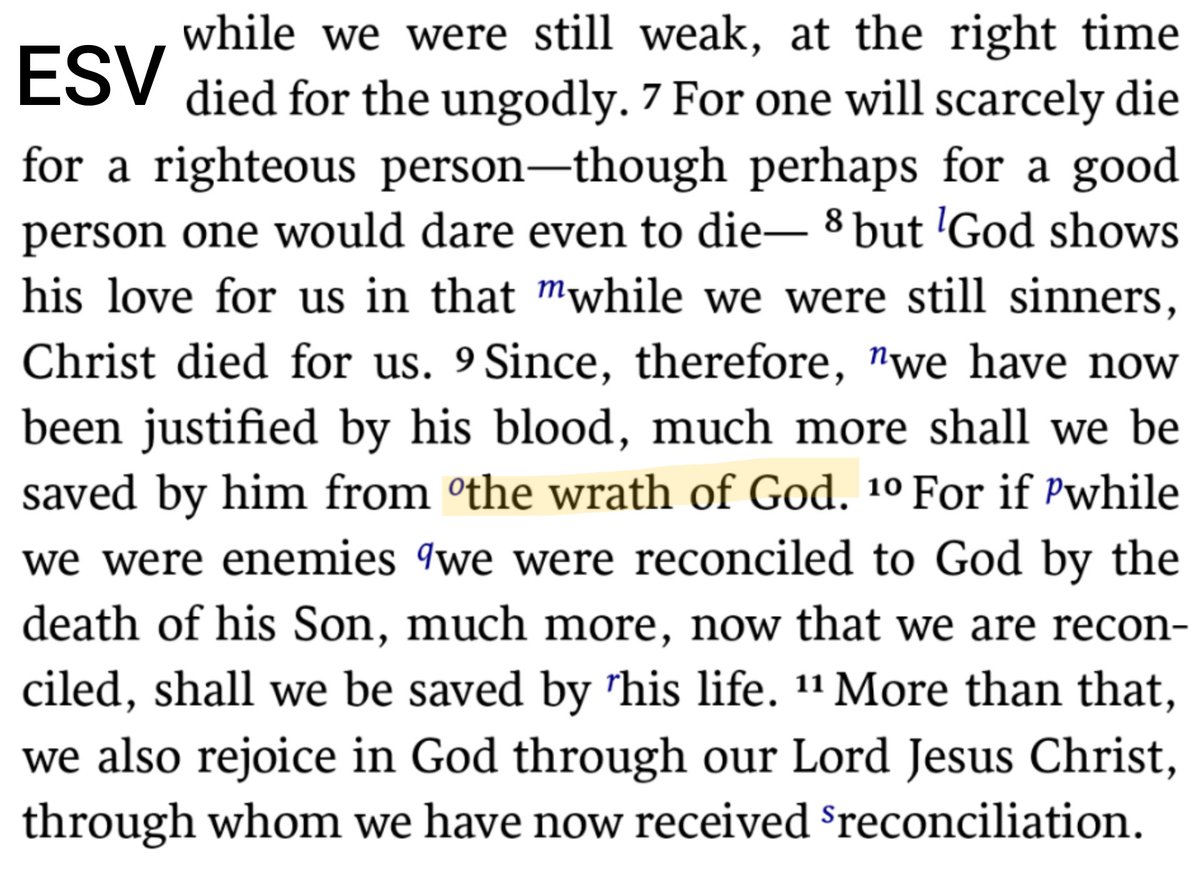
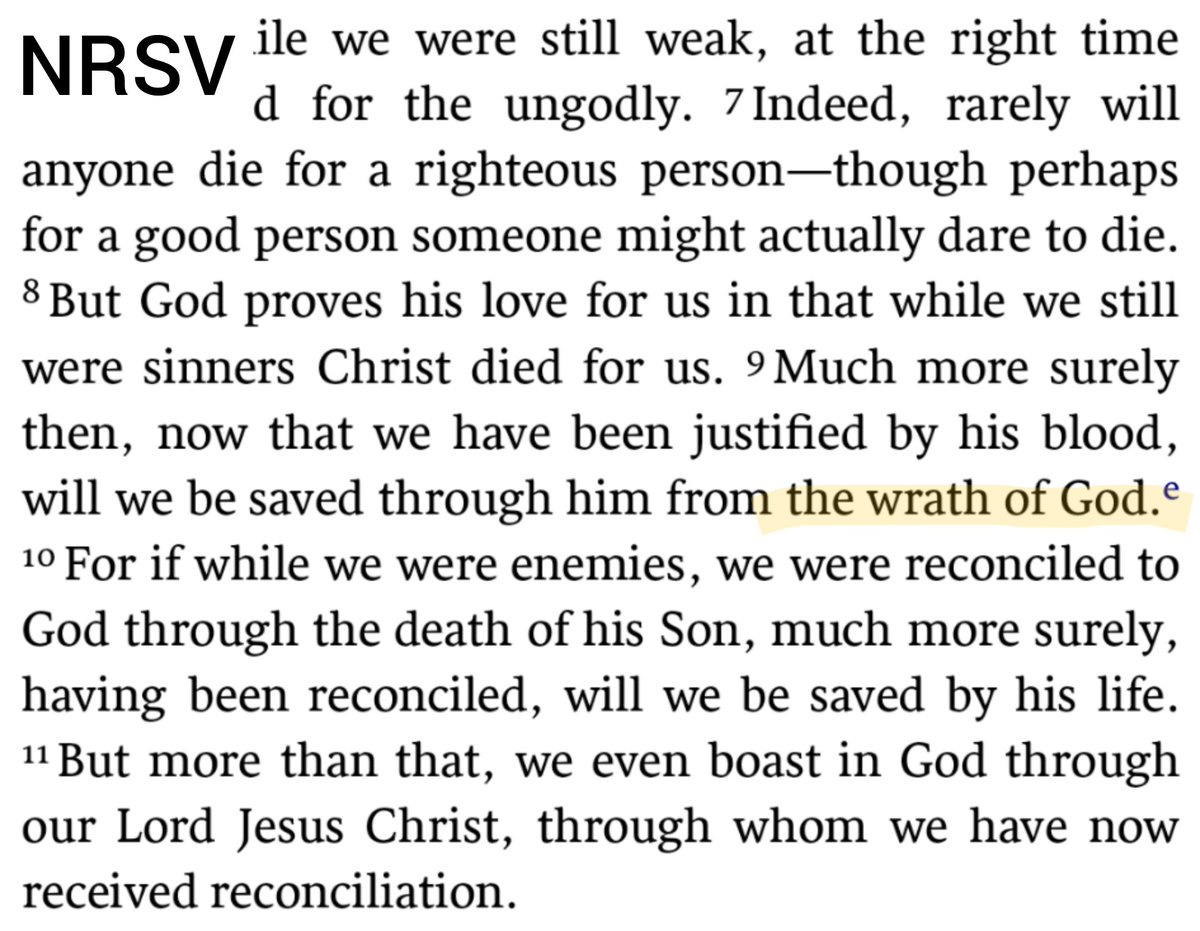
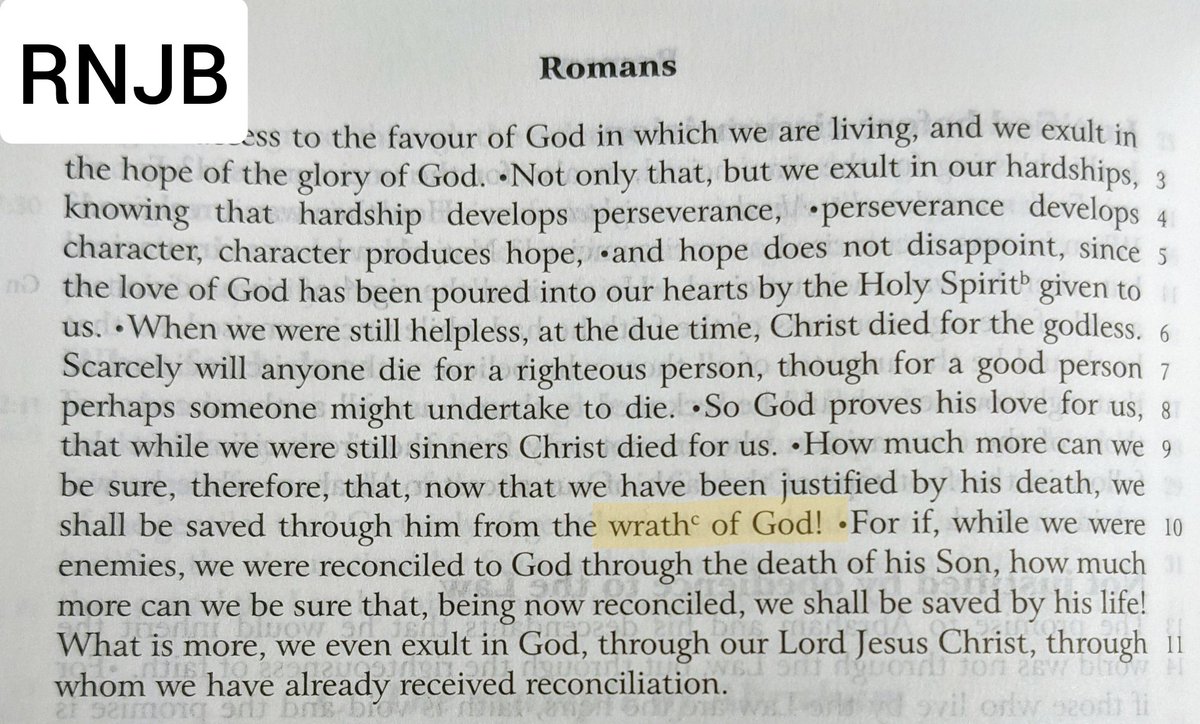
(7/7) I make no apology for my preference of the ESV-CE over RNJB for the new translation of the OF lectionary. But no translation is perfect, and there's much in the ESV that could be criticised.
All I ask is that such criticisms are accurate and fair - this article is neither!
All I ask is that such criticisms are accurate and fair - this article is neither!
• • •
Missing some Tweet in this thread? You can try to
force a refresh

